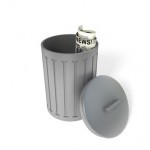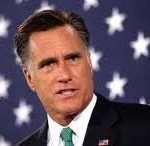
by | Nov 2, 2012
 Below is the full text of the “Letter to the Editor” I sent to several newspapers in Iowa’s 3rd Congressional District. I believe it makes the case against re-electing Leonard Boswell in a concise fashion. If there is anyone you know still on the fence in this race feel free to forward it to them.
Below is the full text of the “Letter to the Editor” I sent to several newspapers in Iowa’s 3rd Congressional District. I believe it makes the case against re-electing Leonard Boswell in a concise fashion. If there is anyone you know still on the fence in this race feel free to forward it to them.
——————————————————————————————————
For the last ten years I have been represented in the U.S House by Rep. Leonard Boswell. During this time I have often disagreed with his positions, but never have I been more convinced that he has grown out of touch with the challenges facing my fellow Iowans, and our nation at large, than I am this year.
The number one piece of evidence proving this has been his approach to our country’s fiscal matters over the last few years. The reason I am so disappointed in Leonard Boswell is because I did something that has seemingly gone way out of style these days, something even nearly unthinkable actually—I looked up his voting record. More unbelievable perhaps is that I didn’t stop there; I had the nerve to continue doing my civic homework by looking up the record of his opponent Tom Latham as well.
Anyone choosing to do the same will find out that since 2009, the self-proclaimed fiscally conservative “Blue Dog†Democrat Leonard Boswell has cast yes votes on the following pieces of legislation:
• Economic Stimulus Bill—over $800 billion added to the national debt, more than a trillion dollars with interest included (passed the House 246-183 on Feb. 13, 2009).
• Obamacare—price tag of $900 billion over 10 years at passage, most recent CBO scoring nearly doubled this amount to $1.76 trillion (passed the House 219-212 on March 21, 2010).
• Raising the debt ceiling—passed the House 218-214 on December 16, 2009.
• Cap and Trade—according to the Obama administration itself, would have cost Americans up to $200 billion a year (passed the House 219-212 on June 26, 2009).
Meanwhile in the same span he voted against the following measures:
• Cut, Cap, and Balance—passed the House 234-190 on July 19th, 2011
• Debt ceiling bill – This is the John Boehner version that would have raised the debt ceiling in exchange for limits on discretionary spending (passed the House 218-210 on July 29, 2011).
• Reducing spending to F.Y 2008 levels—passed the House 256-165 on July 25, 2011.
Two things of note here are, 1) Tom Latham had the foresight and fiscal decency to vote against all the above bills that Leonard Boswell voted for, and 2) Though Mr. Boswell may have been a fiscally conservative Democrat at some point during his career in Washington—over the last three years he has shown zero concern for the massive debt that has crippled this economic recovery. In fact, he remarkably couldn’t even bring himself to support spending at the level we did just four years ago.
Besides being pleasantly surprised at how rock-solid Tom Latham has been on Federal spending, the thing I took away most from researching these two candidates is how disingenuous it is for Leonard Boswell to claim the mantle of “Blue Dog Democratâ€.
The reason this should matter to voters of all stripes on November 6th is it invites the following question:Â How can we expect our political leaders to do what they say they will once elected, if they are not even who they claim to be while running for office?
Especially since 2009, only one man in this race has had his eyes on the future fiscal health of this country, and by extension the next generation who will inherit this future—and that man is Tom Latham.

by | Nov 1, 2012

The Candidates
Dan Zumbach (R) vs. Nate Willems (D)
Democrat Nate Willems has spent the last 3 ½ years in the Iowa House and is an attorney who graduated from the U of I law School and now specializes in worker’s rights cases. Dan Zumbach is a farmer who has also served on the West Delaware School Board and is heavily involved in coaching youth sports and leading 4-H groups.
The District
Northeastern Iowa is home to Senate District 48, which consists of all of Delaware, most of Linn, and small portions of Jones and Buchanan Counties. Republicans hold a slight advantage in registered voters, the numbers shake out like this—(R-12,949) (D-12,355) (NP-18,082) (R+594).
The Race
Like in most political races this one will come down to two things—the candidates and the money they have to spend. In both areas there couldn’t be much more separation between the two camps.
Dealing first with the money, Willems raised an amazing $180,000 on his own. A fairly high number is to be expected from a 3+ year member of the Iowa House, but still this is a lot of money. On top of that the Democrat party tipped their hand that losing this race would be disastrous by throwing in an amazing $237,000. Zumbach did very well for a first time candidate by raising $90,000 on his own, while the GOP chipped in $23,000.
It is worth noting that the numbers for both are slightly inflated because both gave big chunks of the money they raised back to the Parties who then spent it for the candidates, largely on advertising. After these transactions are factored in the Democrats spent $97,000 of their own money on Willems, while Zumbach actually gave the GOP $2,000. The bottom line is that Willems has well beyond a 2:1 money advantage which has allowed him to encompass all media platforms and go very heavy on mailers.
The other thing that jumps out is how very different these two men are. Willems is the young up and coming Democrat/ lawyer while Zumbach is the community anchored, rugged farmer. Much of the result here will come down to which type of voter comes out in larger numbers on Tuesday. Though Willems has clearly proven he has support by being elected multiple times in this general area, both the House districts that make up this Senate District contain more Republicans than Democrats and this Senate District doesn’t resemble his old House District as much as one would expect. On paper it would seem the obvious advantage would go to the “incumbent”, who also happens to hold a huge money advantage.
The reason I’m not willing to say this race necessarily goes to the winner on paper is that Willems, though a current House member, is running in a largely new district and for a different seat. Though some of it is because the Democrat Party see Willems as a future big player, I have a feeling the huge amount of cash they injected in this race has something to do with Zumbach running strong and resonating with the voters in District 48.
I will be closely watching for this race as the returns come in Tuesday—if this seat goes Republican not only was this race a bad investment for Democrats…they are in for a bad night.
Further Information
Dan Zumbach – DanZumbach.com
Nate Willems – NateWillems.com
Â

by | Oct 31, 2012
 While not big news that Iowa Republicans don’t wait with bated breath for the Des Moines Register to anoint a Republican candidate the cream of the presidential crop, in recent years their recommendations have barely risen above laughable fodder. Since we could all use some comic relief from this seemingly endless campaign season, let’s take a look back at the Register’s recent forays into Presidential advocacy. What follows are two main reasons, among many others, why they should stick to merely reporting on the political pulse of Iowa—instead of trying to alter it.
While not big news that Iowa Republicans don’t wait with bated breath for the Des Moines Register to anoint a Republican candidate the cream of the presidential crop, in recent years their recommendations have barely risen above laughable fodder. Since we could all use some comic relief from this seemingly endless campaign season, let’s take a look back at the Register’s recent forays into Presidential advocacy. What follows are two main reasons, among many others, why they should stick to merely reporting on the political pulse of Iowa—instead of trying to alter it.
Reason #1 – A Sketchy, Schizophrenic History
While nearly all the data on editorial board endorsements show that they have a minuscule impact, if any at all, well over 70% of newspapers insist on letting readers in on their intense, well researched, and agenda free vetting. Though a nightmare for the hard journalism side of the paper, the hubris of editors and the short term buzz created by endorsements proves, cycle after cycle, too intoxicating to deny. Clearly I have no problem with public expressions of political opinion. If a newspaper wants to engage in it in spite of the fact it is counter-intuitive to their charter, then they have every right. However, one does have to wonder if it’s too much to expect for them to undertake the process with a minimal amount of intellectual honesty. Consider the following examples, all from the Des Moines Register’s editorial board since the year 2000.
• When contrasted against a Democrat, they have not deemed any Republican candidate fit for the White House in 40 years, including in the last three cycles—opting for Al Gore in 2000, John Kerry in 2004, and Barack Obama in 2008.
• Of the Republican primary field in 2000 they chose, believe it or not, George W. Bush. Beyond the massive irony, what’s interesting is that they chose Bush over fellow competitor John McCain, describing McCain as “having a tendency toward petulance when the cameras were off, and a lone-wolf style of action that has left him without the support of colleagues who should be his biggest admirersâ€. Never mind that eight years later he was chosen by the editorial board as the best choice amongst Republicans in 2008—though of course he ultimately fell short of recommending.
• In 2004 The Register had sized up John Edwards and concluded that he would make the finest president amongst the group, giving him the nod over all other Democrats running. Somehow over the next four years, he had regressed so far in his ability to lead the Country that when he came back in 2008 they couldn’t recommend him. Not only did they bump him from their top spot they slid him behind both Hillary Clinton and Obama, saying they “too seldom saw the ‘positive, optimistic’ campaign we found so appealing in 2004. His harsh anti-corporate rhetoric would make it difficult to work with the business community to forge change.†Something tells me the editorial board doesn’t have quite the same problem with the “harsh anti-corporate rhetoric†being screamed by the Occupy Wall Street crowd today.
• Also in 2004, in what would prove to be perfect foreshadowing for their future love affair with Barack Obama, the paper, as mentioned above, endorsed John Edwards over the rest of the field. In doing so they wrote that after initially discounting Edwards because of his lack of experience, they changed their minds after hearing him eloquently speak about the needs of ordinary Americans—you can’t make this stuff up! Clearly their weakness/hunger for the fool proof combination of inspired speech giving and inexperience had not been quenched by the time 2008 rolled around. This leads us to the biggest piece of evidence that all the Register is accomplishing is insulting our intelligence…
Reason #2-Â The 2008 Debacle
While the preceding examples were shady, The Register’s editorial board performance in 2008 showed beyond a reasonable doubt not only where their allegiance lay, but that the whole point of their endorsements are to further an agenda. They ended up of course endorsing Barack Obama in the general election, but it’s the way they got there that is so telling.
First, they chose Hillary over Obama on the Democrat side, while endorsing McCain over the rest of the field on the Republican side. I don’t doubt that the selection of McCain was largely due to him being the most moderate Republican in the field (though strangely he was a disturbing ‘petulant, lone-wolf actor’ eight years earlier), but he also would have been a “safe†choice at the time because he was polling in single digits and in 5th place. Picking a Republican that would not go on to win the nomination, like McCain appeared to be at the time, would have kept them out of the undesirable situation they eventually found themselves in—having to endorse their second Democratic pick over their first Republican choice (Obama over McCain).
Embarrassed and knowing they had to explain it away somehow, they managed to make themselves look even worse. They acknowledged the situation and explained their reasoning by claiming they had endorsed McCain because they felt he was a man of honor—but as the campaign wore on he became opportunistic and less dignified. What they cited as the biggest reason of why McCain was out for them was his selection of Sarah Palin. They did this, I kid you not, on the grounds of her inexperience! So to recap…The inexperience of a VP candidate turned them off enough that they instead chose to support, for the actual presidency, a man who had served less than four years in the Senate.
A great way to sum up the whole disingenuous circus is that while selecting McCain in the primary they said, “none can offer the tested leadership, in matters foreign and domestic, of Sen. John McCain of Arizona. McCain is most ready to lead America in a complex and dangerous world and to rebuild trust at home and abroad by inspiring confidence in his leadership.†Contrast that with this insight as to why Hilary Clinton was a wiser choice than Obama, “When Obama speaks before a crowd he can be more inspirational than Clinton. Yet, with his relative inexperience, it’s hard to feel as confident he could accomplish the daunting agenda that lies ahead.â€â€¦You have to give them credit there–that was some impressive foresight.
Conclusion
Former Des Moines Register opinion editor Richard Doak, who authored the 2004 Edwards endorsement, summed it up best in a later interview. Sharing his thoughts on the process he said, “The primary purpose of editorials are to stimulate discussion in the community… and it’s a vehicle through which the newspaper expresses its values.â€
Trust me Richard, Iowa Republicans are plenty aware of the Des Moines Register’s “valuesâ€. Perhaps if they used any manner of consistency in the endorsement process, beyond of course the consistency of their Liberalism, maybe more Iowans would “value†the paper enough to start buying it again.

by | Oct 30, 2012
 ((For a look at all the critical races–Click for TCR:Iowa’s complete Iowa Senate overview))
((For a look at all the critical races–Click for TCR:Iowa’s complete Iowa Senate overview))
The Candidates
Andrew Naeve (R) vs. Rita Hart (D)
Andrew Naeve, who returned to Iowa after playing basketball at Cornell College, is already a political veteran at the age of 27—two years ago he ran for the former incarnation of this seat and only lost by 70 votes after a recount. Rita Hart is a long-time educator and member of the Clinton County Planning and Zoning Commission.
The District
Sitting on the Eastern-most edge of Iowa, Senate District 49 is composed of all of Clinton County and the Northern portion of Scott County. Democrats hold the registered voter advantage by 3,721. The breakdown is: (D-14,620) ( R-10,899) (NP-18,769).
The Race
This race pits two good candidates against each other for the right to represent the district for the next two years, after which this seat will go back on the ballot in 2014 for a full four year term.
In a recent commercial Hart is seen playing up her farming background, bi-partisanship (“good ideas come from both sides of the isleâ€), and auditing the state budget every year. Meanwhile Naeve has been placing his focus on creating jobs through business expansion, tax relief for all Iowans, and improving education.
The money situation here is very telling. Naeve has clearly proven beyond formidable by raising just under $94,000 on his own, and having the GOP kick in another $20,000. As for Hart, she struggled to compete in this area and brought in only $48,000. Fortunately for her however the Democrat Party stepped up big on her behalf. Likely realizing that Naeve was a great campaigner with a real shot to make up the 2,891 registration advantage she had, the Senate Majority Fund intervened heavily by tossing in a whopping $187,000.
All things being equal, especially with the 2:1 money advantage, the Democrats probably like their chances here. That being said, Naeve has proven he can move the needle by taking on a popular Democrat two years ago and falling just short–and mind you he was only 25 at the time.
It says a lot that the Democrat Party felt they had to spend nearly $200,000 in a race where they have a relatively sizable registration advantage. My sense is that this one is going to be close on election night.
Further Info
Andrew Naeve — NaeveForIowaSenate.com
Rita Hart –  RitaHart.org
![Waechter’s Final Pre-Election Weigh In: No Matter How You Vote, the Economy Will Not Improve]()
by Steven Waechter | Oct 29, 2012
 I cast my ballot early. I didn’t vote third-party and therefore my vote isn’t being wasted. It also isn’t going to matter.
I cast my ballot early. I didn’t vote third-party and therefore my vote isn’t being wasted. It also isn’t going to matter.
Since 1990, the United States has run aggregate trade deficits above $8 trillion. This is funny, because in 1990 the M2 metric of currency supply was only $3 trillion. There should be nothing but dust coming out of the ATM machines. We have purchased entire merchant-fleets full of foreign goods, and paid for it by quite literally printing money.
Foreign countries, being more blatant about their currency devaluation policies, have been willing to go along with this arrangement. The result is this dynamic: The US prints dollars to buy goods from China, and the Chinese central bank prints yuan to buy the dollars. We get cheap Chinese stuff, the Chinese central bank gets huge dollar reserves, and the Chinese people get jobs and lots of inflation.
As the years went by, this dynamic absolutely shattered the productive impetus in the American economy. There is no reason to manufacture anything, or engage in productive activity in general. There is also no reason to hire people to help you be productive.
You can see this dynamic in your own communities, with factories that are closed, the kids that can’t find jobs, and farmers – busy producing inflation-sensitive commodities on land, which can’t be outsourced – buying new trucks with cash. The illness in our economy is bad monetary policy.
In a normal economy, if there is demand for consumer goods, entrepreneurs have to take land, labor, and capital and combine them in a way that produces goods efficiently, and at a price the general public can afford to pay. The American economy has another option – we can simply print money and spend it on imports, which is much simpler, requires no investment of capital or any hiring, and is much cheaper.
The result was the largest consumption binge in history, and an economy dependent on investment bubbles – tech stocks, housing, government bonds. The Federal Reserve poured new money into the financial system. You could get a home equity loan to cover your credit card debt, rung up at retail outlets selling almost exclusively imported goods.
Since manufacturing was on the way out, the service sector was the place to be, and the best service sector jobs require college degrees, so the answer is to go to college. Both parties agreed; the answer wasn’t to address the problems with our monetary system, but to attend college. Every young person was told that college is critical.
Now, we have more people in their 20’s living with their parents, more college graduates than ever are working part time, if they can find jobs at all, and the only policy solutions coming out of our elected officials is to double down on college, fund green energy schemes ( I‘m talking about you, Chuck Grassley) and economic development kitsch projects at all levels, building economic Potemkin Villages designed to try and keep the consumption binge going.
Close down Maytag? No problem! Build a race track! Remember when Nancy Pelosi said that unemployment checks would stimulate the economy? People need to spend, spend, spend, because there is no work, work, work.
Without the inflationary monetary policy coming out of the Federal Reserve, the government could not run the enormous deficits, the trade deficit couldn’t have gotten this large (currency would have become scarce, and productivity more valuable), and the government would have to be honest about the absurd arithmetic surrounding our entitlement programs.
Therefore, neither party will countenance a serious challenge to our current monetary system. Even Paul Ryan’s budget plan – so maligned by the left – doesn’t eliminate the deficit nor tackles entitlements. Sound money might even threaten the defense budget, and is therefore terrorism.
So, Barack Obama champions stimulus programs to re-inflate consumption and crows about tariffs on Chinese tires; Mitt Romney labels China a currency manipulator for being willing to bite the inflation bullet themselves and hold our currency as a reserve.
Work in a factory keeps their people busy and gives them the illusion of progress – a bit like how college keeps young people in America busy and gives their parents the illusion that their children will “amount to something.“ Concerns that college diplomas are worthless and that the wages of the Chinese factory worker are shredded by inflation are secondary.
Offshoring is not the machination of evil capitalists; it is a phenomenon of monetary policy, plain and simple. Other countries are willing to hold our currency as a reserve, so we can buy imports with inflation. According to the Examiner, Jeep is next on deck to offshore.
So, services and technological expertise is the key to success in America, as long as another large, developing economy doesn’t devalue their currency and start holding dollars as a reserve.
Especially not one with a large, English-speaking population, and definitely not one with a past influenced by British rule. Why, if that happened, we could just print money and buy our services from that country, and you would run the risk of not fully understanding the technician’s accent the next time you have to call tech support, which is simply unimaginable.
I cast my vote. I ended up voting for the one that I figure is less likely to throw me into a gulag. I suppose this makes my vote “idealistic.â€
Here we are. We have an economy that cannot produce wealth, based on consumption, with a government that we cannot finance and cannot change. We are consistently running trade deficits in excess of $40 billion per month but are told that we lack demand for stuff, almost 50 million people are dependent on food stamps, and an entire generation is shacked up at home, paying their student loans and otherwise too poor to participate in the consumption economy. Yet, there is no stomach for change.
When debating Walter Mondale in 1984, Ronald Reagan cited Cicero and remarked, “If not for the elders, correcting the mistakes of the young, there would be no State.â€
What are the young supposed to do when their elders who run the government have lost their minds?
The post Waechter’s Final Pre-Election Weigh In: No Matter How You Vote, the Economy Will Not Improve appeared first on The Conservative Reader.


by | Oct 28, 2012
 For those who haven’t paid attention to The Des Moines Register’s recent editorial board history, there is no question their endorsement of Mitt Romney is a big story. This history includes a 40 year gap in backing a Republican for President, spanning all the cycles between Richard Nixon’s second run and Mitt Romney’s second bid for the oval office.
For those who haven’t paid attention to The Des Moines Register’s recent editorial board history, there is no question their endorsement of Mitt Romney is a big story. This history includes a 40 year gap in backing a Republican for President, spanning all the cycles between Richard Nixon’s second run and Mitt Romney’s second bid for the oval office.
Over the next week much of what you hear from both the left and the right will be various forms of skepticism, questioned motives, and outright dismals—including claims this was payback for Obama disrespecting them last week. Our readers clearly know we generally don’t have much love for The Register, and specifically we exposed the ridiculous intellectual dishonesty of their 2008 presidential endorsements.
Not only will this reversal-of-course make national headlines in the coming days, it will alienate their shrunken consumer base of hard-line Democrats. This prompts the questions: Is it possible they have turned over a new leaf, or was this retribution and/or just a disingenuous ploy for attention? Surprisingly, my sense is it’s likely the former and not the latter.
What To Make Of This?
Having noted their highly partisan past, I believe all the suspicion and skepticism surrounding this endorsement is largely unfair. The Register deserves the benefit of the doubt for two reasons.
First, Republicans have yearned for a state paper that played things close to down the middle for years. To finally see evidence this institution may be heading this direction and react by simply dismissing it out of hand is biased in and of itself.
Many will say this one action cannot undo years of daily left-slanted journalism, and they are correct, but realize as well that this endorsement is no small thing. If Romney was up 7-10 points here in Iowa you could make the case they simply were backing a sure winner—the reality is that this is a very tight race and The Register’s abandoning of Obama could actually have a small impact, especially on those somehow still wavering voters.
The other reason Republicans shouldn’t cheapen this nod to Romney lay in the actual substance of the endorsement itself.
Before reading it I was expecting heavy equivocation ( ‘though we like Romney on X, we fear he doesn’t understand and will be damaging to Y and Z’ )—this however was largely not the case.
Though sure to say America needs to be even more hospitable to illegal aliens and that losing “progress†on gay and transgendered issues is unacceptable—the remaining balance of the endorsement did not spare Obama on his poor record and laid out a strong case for why Romney would succeed in fixing turning around the economy,
My View
The text reveals this was an “endorsement-endorsement†and not just lip service. Nobody has been harder on The Des Moines Register in recent years than The Conservative Reader, but judgment must be cast on words and deeds not prior reputation. In this case The Des Moines Register was willing to put the two candidates on a scale and report how they saw the resulting measurement.
Going forward, if and when The Register is willing to give Republicans a fair shake—than Republicans should be willing to return the favor.
![Waechter’s Final Pre-Election Weigh In: No Matter How You Vote, the Economy Will Not Improve]()
by | Oct 25, 2012
 The Des Moines Register’s Editor, Rick Green, last night published some details around an interview that the Register’s editorial board held with President Obama Tuesday morning. An interview they could not, at first, talk about publicly. An off-the-record conversation that they say will contribute to their endorsement decision, and the conditions of which will not affect their decision.  Since Rick’s original online post, the White House has released their own transcript of the conversation.
The Des Moines Register’s Editor, Rick Green, last night published some details around an interview that the Register’s editorial board held with President Obama Tuesday morning. An interview they could not, at first, talk about publicly. An off-the-record conversation that they say will contribute to their endorsement decision, and the conditions of which will not affect their decision.  Since Rick’s original online post, the White House has released their own transcript of the conversation.
To his credit, Rick was clearly frustrated with the White House for putting such severe restrictions on the 30 minute telephone interview. He is convinced that Iowans need to hear what the President had to say, and that Iowans would be influenced positively by what Obama shared with the editorial board. The Register has been consistent in their effort to promote transparency in government, and should be applauded for their efforts.
Obviously, the President’s campaign (did we say “White House”?  Are the two the same?) was sensitive to the impact that even a handful of words can have in the world of instant communication. But this administration has been a paragon of secrecy since moving into 1600 Pennsylvania Avenue, and the 2008 campaign promise of transparency has proved not only to be a ruse, but largely ignored by both campaigns in 2012 and the mainstream media.
Rick’s comments attempt to provide an element of transparency at least to the Register’s process, but it’s unfortunate that he treats the President’s requirements for this interview as inevitable. Â Even though he challenged the decision, he said they “relented and took the call. Â How could we not?” Â I think the Des Moines Register’s influence is adequate enough that if they balked, it would have looked bad for the President and the White House eventually would relent because they would have to. Â How could the Register endorse the President without such a conversation?
But, given the idea that Obama is just so important and powerful a man that he should be listened to, the secondary piece of this was amazing to me. Â Rick stated later in his post that the “the White House’s decision won’t play a factor in our board’s final endorsement decision.” Â Perhaps that was a coded message to the Obama team that just the opposite was true. Â But it escapes credibility to believe that anyone in the Register’s position would not give serious consideration to this and other examples of the President’s opaqueness and attempts to control the messages going out so desperately. Â How the President of the United States tries to hide the most trivial information should have a substantial impact on the Editorial Board’s perception of this administration.
Looking back on this, before the White House released the transcripts, it is wildly crazy that there was any concern about the contents of the interview. Â The transcript was about as mundane as the first Presidential Debate. Â The sense is that the President has a cozy enough relationship with left-leaning media such as the Register that they can talk casually about how they will continue to change America in ways that the public doesn’t need to hear, but that the Register’s editors should hear in order to provide the “right” endorsement. Â Even though the Register apparently wants to avoid any such appearance, this sounds like a lot of back room dealing with members of “the team” to get the endorsement. Â Perhaps the White House figured out that the Register has more integrity than that. Â What concerns me is, what kind of off-the-record conversations are going on with other media organizations? Â We may never know.
By the way, the Register hasn’t actually stated that the transcript was accurate. Â I’m assuming they can tell us one way or the other, can’t they?
Image © Aaron Amat – Fotolia.com
The post Des Moines Register Challenge: Endorsement In Secret appeared first on The Conservative Reader.


by | Oct 22, 2012
 Over the past several weeks we have taken an in-depth look at each of the 8 Iowa Senate races TCR: Iowa has deemed as leaning either Republican or Democrat. From now untill election day we are moving on to take a closer look at the 5 Senate races we feel will determine control of the Iowa Senate–and hence control of the Iowa Legislature for the next two years. These races crucial for control are SD 49, SD 48, SD 36, SD 30, and SD 26.
Over the past several weeks we have taken an in-depth look at each of the 8 Iowa Senate races TCR: Iowa has deemed as leaning either Republican or Democrat. From now untill election day we are moving on to take a closer look at the 5 Senate races we feel will determine control of the Iowa Senate–and hence control of the Iowa Legislature for the next two years. These races crucial for control are SD 49, SD 48, SD 36, SD 30, and SD 26.
In addition to looking at these 5 races, on November 4th we will look at the districts where Republicans blew major oppurtunities and therefore are not competetive, and on November 5th we will provide a guide for what to watch for on election night.
Here is a compilation of links to the 8 Senate Leaners we have covered:
Senate District 14 – Amy Sinclair (R) vs. Dick Schrad (D)
Senate District 22 – Pat Ward (R) vs. Desmund Adams (D)
Senate District 8 – Mike Gronstal (D) vs. Al Ringenneberg (R)
Seante District 42 – Rich Taylor (D) vs. Larry Kruse (R)
Senate District 38 – Tim Kapucian (R) vs. Shelley Parbs (D)
Senate District 24 – Jerry Behn (R) vs. Shelly Stotts (D)
Senate District 44 - Tom Courtney (D) vs. Bradley Bourn (R)
Senate District 46 - Shawn Hamerlinck (R) vs. Chris Brase (D)

by | Oct 18, 2012
 (( Click for TCR: Iowa’s complete overview of the Iowa Senate races ))
(( Click for TCR: Iowa’s complete overview of the Iowa Senate races ))
The Candidates
Shawn Hamerlinck (R) vs. Chris Brase (D)
Shawn Hamerlinck is the incumbent here. He is a faculty member of the Eastern Iowa Community College District and is seeking his second term after first being elected to the Iowa Senate in 2008. Chris Brase is a longtime Muscatine firefighter running for office for the first time.
The District
Senate District 46 is on the Eastern border of Iowa, essentially curling around the north and east sides of the city of Davenport. By registered voter numbers this is the true definition of a swing district—(R-11,644) (D-11,197) (NP-15,741) (R+447). Having said that, the fact that both the House seats in this district (91 and 92) are held by Republicans, and the incumbent Senator is also a Republican, suggests the GOP has a stronger history of getting out the vote in this area. The two counties in play are Muscatine and the Southwestern territory of Scott County.
The Race
Surprising most Iowa political watchers, Hamerlinck faced a primary challenge from fellow incumbent and friend Jim Hahn. Though he won handily on primary day he was forced to spend a good deal of money along the way—and as such was way down in cash on hand to Brase as of the last filing period. With Brase having nearly $30,000 in the bank, it remains to be seen if Republicans will double-donate to Hamerlinck—if they don’t I fully expect the Party to step in with resources. The GOP certainly doesn’t want to spend in defense of a popular incumbent, however, the thought of losing an up and coming future star in the Party will be a much less appealing reality.
Despite being only his first term, Hamerlinck has been very active in writing, sponsoring, and co-sponsoring legislation. The areas in which he focused his legislative contributions were in cutting regulations (SF 2116 & SR 7), protecting the 2nd Amendment (SF’s 162, 263, 264, and 372), and creating an online database for citizens to track government spending (SF 139).
Chris Brase is running hard on being able to be bi-partisan, saying he will, “work with anyone who has a good idea—Republican or Democrat—and stand up to partisan politics on behalf of Iowa’s families.â€Â He says he is in favor of cutting taxes on middle class families and helping local businesses—partially by pushing for more low-interest loans for such enterprises.
As mentioned above his $30,000 on hand for this race proves he is able to raise the funds necessary to unseat an incumbent Senator. Beyond providing invaluable advertising, fundraising numbers in non-statewide elections are an important barometer for lesser known candidates because it points to their overall persuasive abilities. This not only translates to cash in the bank but suggests the candidate will do very well on the doorstep of undecided voters.
Though I have this seat leaning Republican there are several factors that make this a possible pick-up for Democrats. On top of the fact Brase has no large registered voter advantage to overcome, has plenty of money, and that local Democrats are likely hungry to finally have representation in this area—Senate 46 falls inside Iowa’s 2nd Congressional District. This is the match-up between Dave Loebsack (D) and John Archer (R), and as of now Archer is not running as strong as the other Republican Congressional hopefuls.
If on election night Loebsack is able to defeat Archer, and do it by close to double-digits, Hamerlinck is in jeopardy of being taken out as well. Though being defeated is certainly possible, I still see Shawn Hamerlinck returning to the Iowa Senate in 2013.
Further Information
Shawn Hamerlinck – ShawnHamerlinck.com
Chris Brase -Â ChrisBraseForIowaSenate.com

by | Oct 16, 2012
 ((Click for TCR: Iowa’s complete overview of the races that will decide the Iowa Senate))
((Click for TCR: Iowa’s complete overview of the races that will decide the Iowa Senate))
The Candidates
Tom Courtney (D) vs. Bradley Bourn (R)
Tom Courtney is the incumbent in the race and currently serves as the Senate Majority Whip and as the Democrat Chair of the Government Oversight Committee. Bradley Bourn retired from the military in 2009 after 24 years, and in that same year unsuccessfully ran for a seat on the Burlington City Council. He has started a small business called Voil Fuel & Services, which produces biofuel from used cooking oil.
The District
Senate District 44 sits in the Southeastern corner of Iowa and is composed of Des Moines and Louisa Counties, and the Western half of Muscatine County. The registered voter situation here is: (D-14,738) (R-10,220) (NP-12,526), which leaves a built in advantage of 4,518 potential Party voters for Senator Courtney.
The Race
Courtney, a former Burlington School Board member, was first elected to the Iowa Senate mid-term in 2000. He won re-election in 2002 before winning the seat again in 2004 and 2008. Throughout his tenure he has tried several times to raise Iowa’s minimum wage, most recently trying to pass a bill that would have increased it from $7.25 to $10.00.
He has been in the news in the last two weeks for efforts to have Secretary of States Matt Schultz audited for using Help America Vote Act funds to purge Iowa’s voter rolls of non-eligible voters. The success of this effort will likely not be known till after the election, and it will be interesting to see if the publicity this has earned him right before November’s vote will be an advantage or if it will be offset by motivating Republicans in this district to turn out. Based on his voter registration edge, I probably would have advised him not to play this card, as the risk seems to outweigh the reward.
Besides his military background, Bourn is running as a staunch fiscal and social conservative. Lowering state spending and taxes are his key issues, telling local media outlets that, “I worked hard all my life. I paid a lot of taxes in my lifetime. I know a lot of people, obviously, have and I’m tired of money just being thrown down the drain.â€Â Speaking on Iowa spending more money that it takes in each year he said, “That’s just unacceptable. I’m tired of having productive people’s money being given to the unproductiveâ€.
Bourn is likely to hit Courtney on spending issues and his Government Oversight Committee’s failure to detect and stop the Iowa Film Office’s massive scandal from a few years ago. Though these lines of attack are effective, I have this seat in the end being won by Senator Courtney. The main reasons are that Courtney has been an outspoken and active member of the Democrat Caucus, the voters know what they have in him, and he has not been unseated in three previous cycles. On top of this he had five times more cash on hand than Broun as of July 19th.
What we have here is a classic Liberal vs. Conservative match-up. Knowing that Bourn is a highly credible challenger will likely cause Democrats in the district to head out to the polls, and I see Courtney scoring a victory largely as a result of his voter registration advantage.
Further Information
Sen. Tom Courtney – Iowa Senate Page * Facebook Page
Bradley Bourn – Bourn4Senate.com
((TCR: Iowa’s Complete Overview of the Struggle for the Senate))

 Below is the full text of the “Letter to the Editor” I sent to several newspapers in Iowa’s 3rd Congressional District. I believe it makes the case against re-electing Leonard Boswell in a concise fashion. If there is anyone you know still on the fence in this race feel free to forward it to them.
Below is the full text of the “Letter to the Editor” I sent to several newspapers in Iowa’s 3rd Congressional District. I believe it makes the case against re-electing Leonard Boswell in a concise fashion. If there is anyone you know still on the fence in this race feel free to forward it to them.


 While not big news that Iowa Republicans don’t wait with bated breath for the Des Moines Register to anoint a Republican candidate the cream of the presidential crop, in recent years their recommendations have barely risen above laughable fodder. Since we could all use some comic relief from this seemingly endless campaign season, let’s take a look back at the Register’s recent forays into Presidential advocacy. What follows are two main reasons, among many others, why they should stick to merely reporting on the political pulse of Iowa—instead of trying to alter it.
While not big news that Iowa Republicans don’t wait with bated breath for the Des Moines Register to anoint a Republican candidate the cream of the presidential crop, in recent years their recommendations have barely risen above laughable fodder. Since we could all use some comic relief from this seemingly endless campaign season, let’s take a look back at the Register’s recent forays into Presidential advocacy. What follows are two main reasons, among many others, why they should stick to merely reporting on the political pulse of Iowa—instead of trying to alter it.










